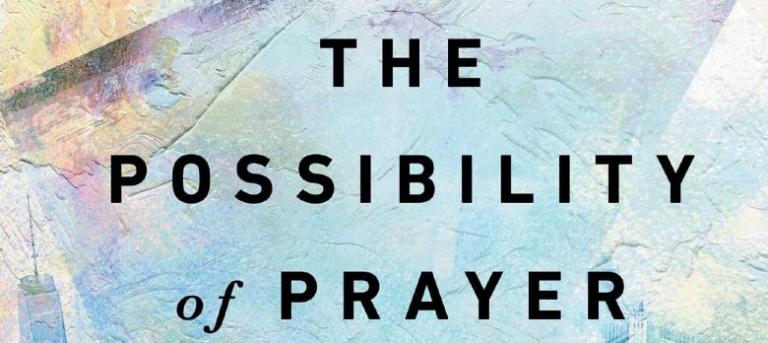
Some books land in your hands at just the right time. This was definitely true for me with David Murray’s new book Reset: Living a Grace-Paced Life in a Burnout Culture. Dr. Murray tells the story of his own struggle with overwork and burnout then helps men understand how they can refresh and recover when they are worn out. (Refresh, which he coauthors with his wife Shona, will be out this fall.) His advice is rooted in the truths of the Gospel and work out practically in the real world.
Any man who feels overwhelmed by life’s realities will benefit from Murray’s work. Here are my favorite quotes from Reset.
“I want to help you reset your life so that you can avoid crashing, or recover from it, by establishing patterns and rhythms that will help you live a grace-paced life and get you to the finish line successfully and joyfully.” (24)
“We are independent, self-sufficient men who find it hard to admit weakness, seek help, and change deeply ingrained addictions to overwork, busyness, and productivity. For pastors and ministry leaders, it’s especially difficult; since so much of our work is invisible and intangible, we can be tempted to go into overdrive in more noticeable tasks in order to prove that we are busy and strong.” (24)
“Physical warning lights: You are putting on weight through lack of exercise or eating too much junk food, or you are drinking too much alcohol or coffee.” (26)
“Mental warning lights: Concentration is hard; distraction is easy.” (26)
“Many of our problems happen not only because we do the wrong things, but also because we believe the wrong things. Behind many seemingly practical problems are theological problems.” (38-39)
“Few things drain me as much as conflict; not just those I end up in, but also those I’m asked to mediate. Then there are church conflicts and splits. I’d rather go into the ring with Mike Tyson; at least so I’d be unconscious.” (46)
“Few things are as theological as sleep.” (54)
“On a more mundane level, I notice (and so does my family) that I am much more irritable, bad-tempered, and likely to end up in conflict when I’ve skimped on sleep. No amount of productivity is worth that damage to precious relationships.” (59)
“Men talk to me about their mental and emotional exhaustion, and all through the conversations, their phones are lighting up with a distracting blizzard of sounds and images. And they wonder why their brains feel fried! They’re giving themselves continual mental whiplash as they pour stimuli and data into their brains from every direction.” (92)
“The longer I go uninterrupted, the calmer my mind, the better my focus, the deeper my thinking, and the more efficient my time management. And it’s not just that I will not be interrupted; it’s that I know I will not be interrupted. That produces a totally different mindset and mind depth than one that’s sub-consciously waiting for the next beep or ding.” (93)
“To paraphrase Blaise Pascal, ‘All our miseries derive from not being able to sit in a quiet room alone [with God].’ We’d like it to be different. But as Psalm 46 confirms, God has inseparably and irrevocably joined quietness with knowledge of him. What God has joined together, let not man put asunder.” (95)
“God designed this pattern of six days of work and one day of rest for perfect people in a perfect world. How much more do we need it now in such fallen bodies in such a fallen world? This is a divine gift for our good, as Jesus said: ‘The Sabbath was made for man’ (Mark 2:27). It’s needed now more than ever before, considering that in the last twenty years working hours in the United States have increased 15 percent and leisure has decreased 30 percent.” (99-100)
“Based on the truth that we are made in the image of God and therefore are called to reflect, to some degree, his purposeful sovereignty, I believe that every Christian should build on the firm base of a Well-Planned Life.” (126)
“In our interconnected world, there are far more activities and opportunities than we have time and resources to invest in.” (137)
“Remember, it’s rarely one extra big thing but the addition of lots of little things that tend to overwhelm us, because it is much more difficult to say no to the little things.” (137)
“None of us should feel guilty for engaging in activities that fill up our tanks. If our tanks are empty, we are no use to anyone.” (154)
“Giving time and energy to our relationship with God actually increases free time and energy because it helps us get a better perspective on life and order our priorities better, it reduces the time we spend on image management, and it removes fear and anxiety.” (158)
“The most important words in any marriage are: thank you, I’m sorry, I forgive you, and I love you.” (164)
“He (Aric Sigman, cited in The Power of Rest) quoted from Duke University research from 2005 that found that in the previous twenty years, with the rise of virtual communication, the number of people who said they had no one with whom to discuss serious personal matters increased from 7 percent to 25 percent.” (171-172)
“We have experienced God’s resurrection power in our lives, which gives us tremendous confidence to face the future and even face up to old problems and challenges that previously crushed us. We no longer depend on our own limited resources of reason and persuasion, but trust in God’s resurrection power to change people and places.” (190)
Related Posts:
“The Best Quotes from Momentum“















